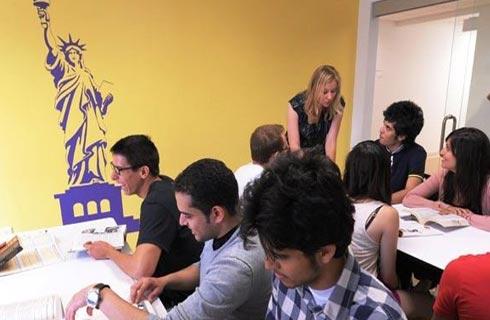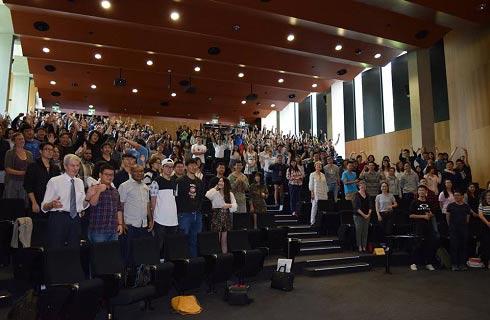课程简介
On this Linguistics and Psychology joint honours degree, you will learn about behaviour from infancy to old age, and deal with the biological, social and individual factors that affect human psychology and language use.Studying linguistics will enable you to learn about, understand and interpret many aspects of human language. On this Linguistics and Psychology course, you will study the ‘science’ behind language, including possible sounds used in speech and their combination (phonetics, phonology), how words are built up morphology), what distinguishes sentences from just strings of words (syntax), meaning (semantics and pragmatics), the effect that society, culture and norms have upon language use (sociolinguistics) and how languages change over time. Linguistics is the study of how language works and how and why language is used. Linguists look at not only how people learn, understand and speak language, but also at the way different people use language differently. Linguistics has a theoretical dimension but also an applied dimension – such as language technology, language policy and language in education.You will also have the opportunity to learn about the ways in which different languages are different or similar in terms of their grammar, how society and language go hand-in-hand, and the functions and status that different languages have across the world.Psychology is the scientific study of how people behave, feel, think and learn. As a science and as a profession, Psychology makes a difference to people in the real world, by improving quality of life across a wide range of areas.In Psychology, you will study the mind, thought and behaviour, and you will learn about how to describe and explain how people live, think, socialize and develop. You will get the opportunity to find about things like: the factors that govern human psychological behaviour, how our environment influences our thoughts and feelings, how children’s minds develop and change as they grow older, and about research methods and advances in the field of psychology.Placement Year and International Experience Year AvailableCareersThis degree in Linguistics and Psychology provides subject knowledge and expertise. You will also develop important transferrable skills valued by a range of employers. These include critical reading and evaluation, research and analytical skills, project management skills, proficiency in diverse modes of presentation (written, electronic and spoken), problem solving skills, experience working independently, time management and team-work experience, information technology skills, and the chance to develop effective interpersonal communication.Linguistics and Psychology graduates gain a broad range of skills applicable in a variety of occupations, such as media, education, advertising, management, government, research, health, translation, interpreting, publishing, civil service, speech therapy, community work (e.g., related to language policy and engagement), etc. In some cases, you will need further training and qualifications beyond what this course provides. A career in research is also an option, as is postgraduate study.
展开







 预科
预科 奖学金
奖学金 实习机会
实习机会 在校学习
在校学习 跨境学习
跨境学习 校园授课-线上开始
校园授课-线上开始 在线/远程学习
在线/远程学习














 马特·克里斯蒂学院
马特·克里斯蒂学院

 昆士兰大学
昆士兰大学

 昆士兰大学
昆士兰大学

 悉尼大学
悉尼大学

 悉尼大学
悉尼大学

 悉尼大学
悉尼大学









 英国
英国